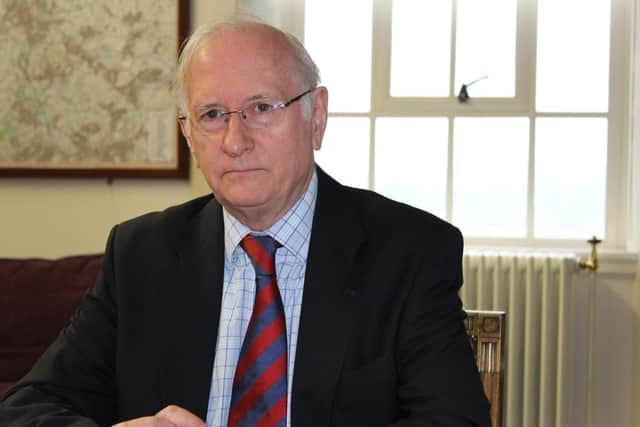A final goodbye from me as time is called on the role of Police and Crime Commissioner in South Yorkshire - Dr Alan Billings
In addition, because of the election, we are about to enter a pre-election period called purdah when politicians cannot write or make announcements that could be construed as using our position to favour one of the candidates. A combination of term end and purdah means this is the last time I shall be writing.
I started to write when Covid locked us all down and I could not get out and about meeting people in the way I had done previously. It was a way of keeping in touch. Now, it is time for me to stop and find my way into life’s long grass.
Advertisement
Hide AdAdvertisement
Hide AdSome journalists and broadcasters have been asking me about what I have achieved in the nine years I have been in this position. I think that is the wrong way of framing the question. There is very little that I do alone or directly.


The most satisfactory change has been the improvement of South Yorkshire Police (SYP). In 2016 they were rated by HM Inspectors as ‘requiring improvement’. In the latest inspection they were graded as ‘outstanding’ in three categories, ‘good’ in five and ‘adequate’ in one. This makes them one of the top performing forces in the country. This matters. It gives us, the public, confidence in our force, it supports police morale, and it means that people want to join: recruitment is not a problem here as it is for some.
The main direct contribution a PCC can make to this is to ensure that the right person is appointed as Chief Constable – I have appointed two in my time – and to develop ways of holding the force to account which are supportive but also challenging. There have been times when we have had to ask difficult questions, times when we have had to give encouragement.
A second area is without question the treatment of victims. When I became PCC, in the wake of the Jay Report into child sexual exploitation (CSE) in Rotherham, I had a visit from the father of a young woman who had been groomed and sexually abused – and ignored by the police. I knew little or nothing about CSE. We agreed to set up a Victims, Survivors and their Families Panel, to advise me and, ultimately, to advise the police.
Advertisement
Hide AdAdvertisement
Hide AdThey taught me and, I believe, the police, the importance of listening to victims of crimes and not assuming you know everything or there is nothing new to know.
One of the last things I have done is to speak to a group of new recruits at their attestation ceremony. This is when they take an oath before a magistrate and receive their warrant cards.
There were 56 recruits, men and women, at Robert Dyson House, the police training centre at Wath-upon-Dearne. The average age was probably somewhere in the early twenties.
Hearing them repeat the oath with such conviction was also encouraging. They not only swore to keep the King’s peace and prevent crime, but also to uphold human rights and accord equal respect to all people. This is what these young officers committed to and it is against these high standards that I have sought to hold South Yorkshire Police to account during my three terms of office. Now it is up to the Mayor.
A shortened version of the Police and Crime Commissioner for South Yorkshire’s latest blog post.
Comment Guidelines
National World encourages reader discussion on our stories. User feedback, insights and back-and-forth exchanges add a rich layer of context to reporting. Please review our Community Guidelines before commenting.